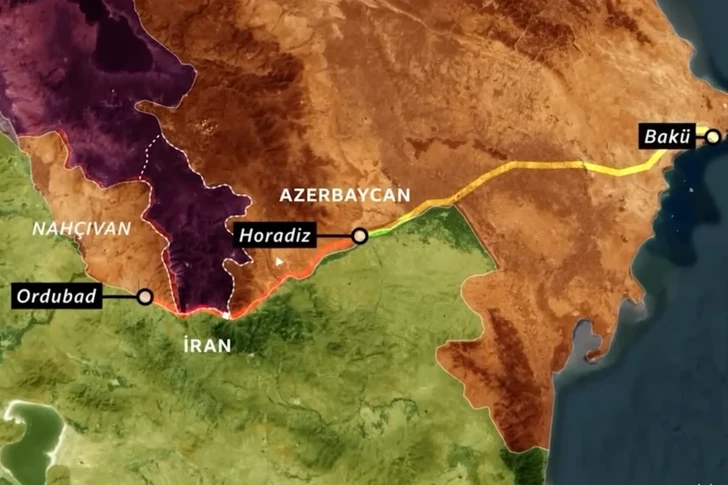Baku, August 19, 2025 — The signing of the August 8 peace declaration in Washington between the leaders of Azerbaijan and Armenia, which included an agreement on the so-called “Trump Route” linking mainland Azerbaijan with Nakhchivan, might have been expected to ease tensions in Tehran. Yet instead of recalibrating its rhetoric, Iran has intensified its anti-Azerbaijan campaign — in politics, media, and expert circles.
The paradox is striking: it was Armenia itself that initiated the handover of the transit corridor to a private U.S. company for 99 years, even branding it “The Trump Path for International Peace and Prosperity” in honor of President Donald Trump. This decision in Yerevan, not in Baku, sparked the alarmist line now circulating in Tehran: “America has become our neighbor.”
Azerbaijan’s Clarification
When the issue first surfaced in July, President Ilham Aliyev addressed it directly at the Global Media Forum in Shusha:
“As for the claim that an American company will lease the Zangezur Corridor, this question should be addressed to the Armenian leadership. On our territory there can be no operators, traders, or leaseholders.”
Aliyev emphasized that the Azerbaijani segment of the corridor will remain fully under national sovereignty, without foreign presence. The American operators that concern Iran will act only on the Armenian section of the route.
Why Iran Targets Baku
Despite these clarifications, certain circles in Iran continue to frame the project as an Azerbaijani maneuver, ignoring Armenia’s central role in bringing U.S. actors into the South Caucasus transit equation. Analysts note that Tehran appears less interested in factual accuracy than in maintaining a narrative that casts Azerbaijan as a destabilizing force.
This stance reflects broader Iranian anxieties: the expansion of U.S. strategic presence along its northern border, the deepening of Azerbaijan–U.S. ties, and the potential weakening of Iran’s influence in Armenia. For Tehran, the optics of an American-controlled corridor — even if limited to Armenian territory — are alarming enough to fuel an information campaign.
Regional Implications
The Iranian narrative underscores the geopolitical weight of the “Trump Route.” For Azerbaijan, it represents a long-awaited direct land link to Nakhchivan. For Armenia, it is both an economic opportunity and a diplomatic gamble. For the U.S., it is a chance to entrench influence in the South Caucasus. And for Iran, it is perceived as an encroachment — one that it finds politically convenient to blame on Baku, even if Yerevan was the true architect.


